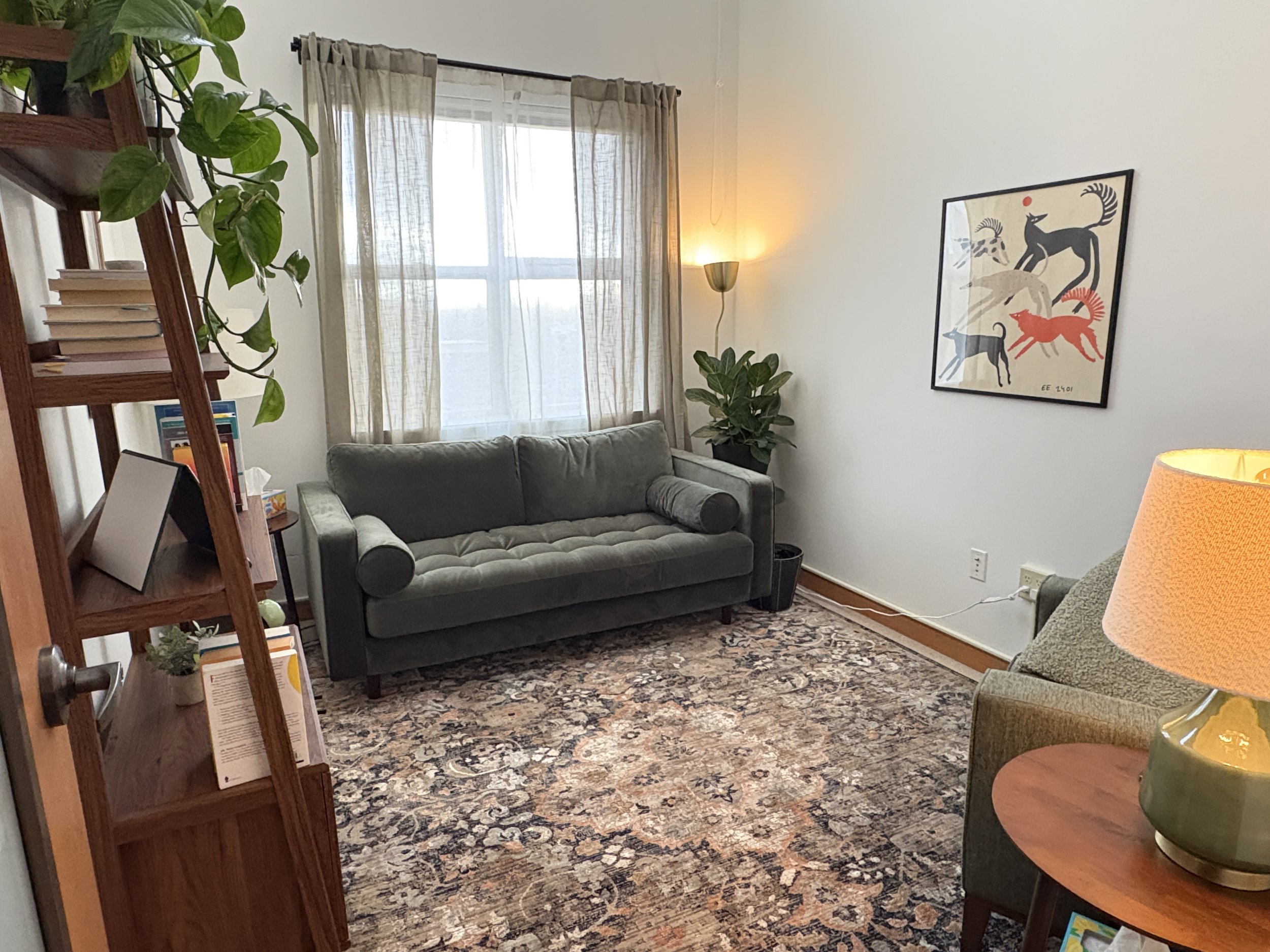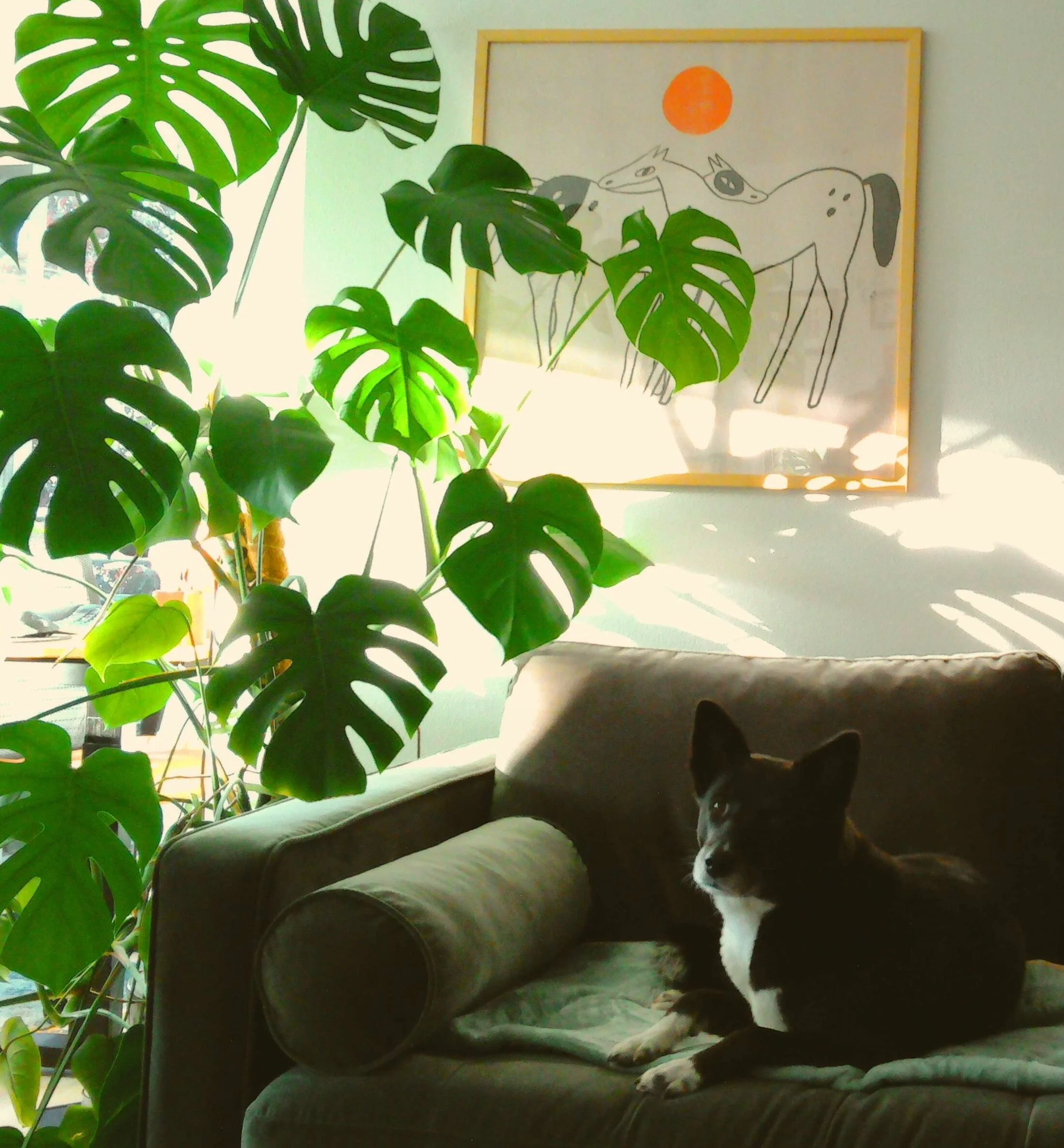my approach & philosophy
Do you ever feel like you’re too much—or not enough?
Do past family or relationship wounds still shape the way you see yourself today?
Do your emotions sometimes feel overwhelming—like they’re in control instead of you?
Do you struggle to feel compassion for yourself, even when you can extend it to others?
Many of my clients come to therapy feeling stuck, overwhelmed, or disconnected from themselves. For some, difficult family dynamics or relational trauma left lasting wounds that continue to shape how they move through the world. For others, the struggle looks more like a persistent inner critic, emotions that feel too big to manage, or a sense of being “too much” or “not enough.” Often, they’ve already tried different ways of coping—pushing feelings down, overworking, keeping busy, or seeking reassurance—yet still feel unsettled, self-critical, or alone.
You are not alone.
If this sounds familiar, you’re not alone. Many people wrestle with anxiety, depression, or low self-worth, and it’s common to blame yourself when nothing seems to “fix” the problem. The truth is, these struggles are deeply human responses to pain and disconnection. They don’t mean you’re broken, they mean you’ve been doing your best with the tools you’ve had.
How therapy can help:
This is where therapy can offer something different. I work with those who are ready to better understand themselves, soften self-judgment, and create more ease in their relationships. My style of counseling is collaborative and nonjudgmental, with an emphasis on helping you build self-trust and connect with your own inner resources. Therapy offers a chance to experience a relationship centered on you—a place to discover new opportunities for personal growth, self-compassion, and fulfillment.
It’s also a place to pause and:
Understand how past experiences shape your present patterns.
Learn to notice and respond to emotions without judgment.
Shift from self-blame toward self-compassion.
My approach:
My work is trauma-informed and integrative, drawing from complementary theories to honor the whole of who you are. We may use attachment-focused exploration to understand how past relationships shape your patterns, somatic practices to connect more deeply with your body’s wisdom, or existential reflection to explore meaning and direction. Multicultural and feminist perspectives are also always present in how I view human suffering and healing. I’m also passionate about animal assisted therapy and the healing power of the human-animal connection.
My practice is open to all who resonate with my style, with a particular focus on supporting LGBTQIA+ and neurodivergent folks. For many LGBTQIA+ and neurodivergent people, daily life can feel like trying to navigate spaces where your full self isn’t always seen, understood, or welcomed.
Together, we’ll co-create a space where you feel seen, heard, and welcome to step into the fullest version of yourself.
A note on animal assisted therapy:
My dog, Roux, may be present for many of our in-person sessions. She is a certified Canine Good Citizen by the AKC, and together we have completed classes in therapy dog training and advanced obedience, along with CGC training and evaluation. Additionally, I’ve completed specialized coursework in animal-assisted interventions and gained hands-on experience volunteering at an equine-assisted therapy facility during my practicum. All of this informs my intentional approach to therapeutic in-session animal interactions.
Roux offers a tender, grounding presence, while her affectionate and independent personality can provide unique opportunities for relational work. Based on interest and goals alignment, we can explore possibilities for the intentional integration of animal assisted work within our sessions.

